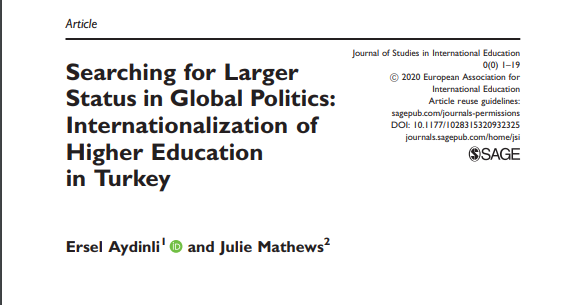Searching for Larger Status in Global Politics: Internationalization of Higher Education in Turkey
This work explores how a country’s political status may impact its soft power policies, such as internationalization of higher education, through an examination of the Turkish case. Based on a survey of and subsequent interviews with actual implementers of policy, university international office heads and staff, the study draws on the theory of “status inconsistency” to contrast the country’s willingness to internationalize, its attributed status as a global magnet for internationalization, and its actual capacity to meet its internationalization goals. It finds that the politicized, top-down policies designed by a status-seeking nation may lead to disconnects in practice that in turn can cause various problems, including misguided “vertical” loyalties; failure to design creative, needs-based institutional visions; and a lack of genuine feedback and evaluation mechanisms, all of which may inadvertently put at risk the very status that was seeking to be improved. Recommendations are made for greater sharing of ideas among the implementers and for more diversity in interpretations of how to achieve internationalization at the institutional level.
To read: Journal of Studies in International Education


